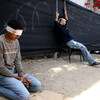
In recent years, Israel has openly admitted that ISA (formerly the General Security Service) interrogators employ “exceptional” interrogation methods and “physical pressure” against Palestinian detainees in situations labeled “ticking bombs”. B’Tselem and HaMoked - Center for the Defence of the Individual have examined these interrogation methods and the frequency with which they are used, as well as other harmful practices. The report’s findings are based on the testimonies of 73 Palestinian residents of the West Bank who were arrested between July 2005 and January 2006 and interrogated by the ISA. Read more about Report: Majority of surveyed Palestinian prisoners subjected to ill-treatment
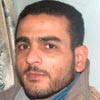
“I live with my wife and children in the al-Shabura refugee camp in the center of Rafah. I have two sons and two daughters, the eldest child is six and the youngest is one year old. I work as a traffic policeman in the Rafah Police Department and make NIS 1,940 a month. In January 2003, when my son ‘Ali was six months old, I noticed that he had problems hearing and that he was slow in his movements. I took him to the clinic of Dr. Nabil al-Barqoni, a private pediatrician. He conducted some tests and found that ‘Ali had an enlarged spleen and liver and a hearing deficiency.” Read more about Testimony: A father and ill son from Gaza stranded in Egypt
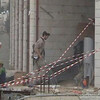
On 19 March 2007, a new settlement was established in the heart of a Palestinian neighborhood in Hebron . According to media reports, the settlement is composed mainly of Israeli yeshiva students. The Israeli army has redeployed in the city to protect the settlement. The Defense Ministry initially hinted that it was considering evacuating the settlement, but as time passes, it becomes clear that the political echelon has decided to leave the settlement in place. Establishment of the new settlement in the heart of a Palestinian community will lead to further restrictions on Palestinian movement. Read more about New settlement in Hebron violates Palestinian rights
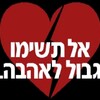
Today the Knesset extended for fifteen months the validity of the racist Nationality and Entry into Israel (Temporary Order) Law, which prevents family unification of residents of East Jerusalem and citizens of Israel married to Palestinians who are residents of the West Bank or the Gaza Strip. The extension follows the High Court of Justice’s rejection last year of the petition filed by Adalah and the Association for Civil Rights to invalidate the statute. In addition, the Knesset expanded the application of the law to include a category “dangerous countries,” containing Syria, Lebanon, Iraq, and Iran, whose citizens are denied family unification under the provisions of the statute. Read more about Knesset extends racist entry law for another year
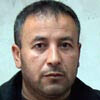
Two days ago [9 February], I went with my brother Salah to our fields to prune the grapevines. My children, who are six and eleven years old, and Salah’s children, who are four, six, and twelve years old, came with us. We reached the vineyards at nine in the morning and began the pruning. We finished working around three in the afternoon and left. We walked two kilometers to the north, toward ‘Ein al-Qasis, to land belonging to my cousins, Samer and ‘Imad Salah. They had asked us to plant sage in their field. Their plot is close to the part of the Neve Daniel settlement that has nine caravans. A settler named Hananya lives there. Everybody knows him because he attacks Palestinian farmers. Read more about Testimony: Settlers attack Palestinian farmers, including small children
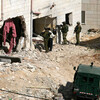
8 March 2007: Testimonies taken by B’Tselem reveal that during the army’s operation in Nablus in late February, soldiers used two Palestinian children, a fifteen-year-old boy and a eleven-year-old girl, and a twenty-four-year old man as human shields. The use of human shields constitutes a flagrant breach of international humanitarian law and is explicitly and clearly prohibited by Israeli military orders. B’Tselem wrote to the Judge Advocate General and demanded that he immediately order a Military Police investigation into the matter. Read more about Israeli soldiers use two Palestinian minors as human shields

‘Abd a-Ra’uf al-‘Adini testifies to B’Tselem: Two days ago [23 January], the last day of school semester, I went to school and took an exam in mathematics. Then, around nine o’clock, I met my two friends. We sat together for about fifteen minutes. Mahran suggested that we quit school and look for work in Israel , anything other than this life of hardship in the Gaza Strip. Mahran’s father is a government clerk, and he lives off advances that he gets on his salary, which is not currently being paid. ‘Imad and I agreed to the idea of working in Israel ; in any case the situation there is better than it is here. Read more about Wounded teen speaks about friend's killing at Gaza fence
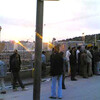
On 17 February 2007, around 9:40 P.M., three young men from ‘Azzun ‘Atmah were summoned to help free a car that was stuck in a field in the village. They drove to the area in a tractor without lights. The tractor went up onto a boulder and flipped over. One of the men, ‘Adel ‘Omar, 21, was pinned under the tractor and seriously injured. The village of ‘Azzun ‘Atmah is surrounded by the separation barrier, and lies between Israel ‘s green line and the separation barrier. The only way out of the village is through a gate in the barrier, which closes at 10:00 P.M.
Read more about Injured Palestinian dies after being held up at gate
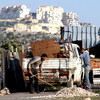
In early January, the Civil Administration’s Supreme Planning Council approved the amended outline plan for the new neighborhood in the Modi’in Illit settlement, which is located west of Ramallah. The plan for the neighborhood, called Matityahu East, took effect on 23 February and retroactively “rendered fit” forty-two buildings, containing hundreds of new housing units, that were built in violation of the relevant planning and housing laws. Read more about Illegal construction approved in the Modi'in Illit settlement
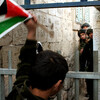
Shopkeeper Dahud Jabber testifies to B’Tselem: “We heard stones hit the door of the grocery store. They [the settlers] threw stones for about an hour. They swore and shouted, “We want to slaughter Arabs.” A neighbor of mine, Tareq, said that they also threw stones at his house. They did all this with Israeli soldiers next to them. We did not file a complaint with anyone. Who could we complain to? We had already complained and never got any results. Another neighbor, Sufyan, told me that settlers broke into his house the same night and assaulted his family.” Read more about Settlers assault family as soldiers look on: Three testimonies









